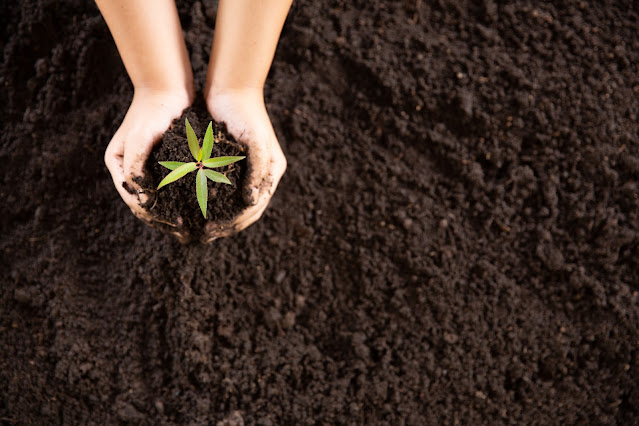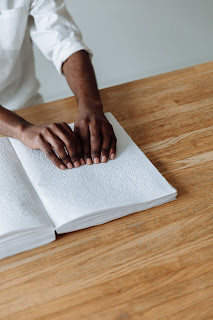SAVE THE SOIL, SAVE THE WORLD
Howdy Howdy! Today we’re going to talk about soil and why it’s so important, along with some ways you can improve it. Soil can make or break not only a garden but entire civilizations. Please understand I’m not just talking about dirt, but the dirt that contains life, microbes, bugs, worms, water, and organic matter, that’s soil and it needs our help.
Soil erosion is a huge environmental challenge in many places and it is often exacerbated by modern agricultural farming practices. Luckily for us, permaculture can help. With permaculture, we can reverse the damage we’ve done to the planet, as well as grow our food in a way that is actually smarter and regenerative (instead of just sustainable).
Permaculture crops are known to produce higher yields while taking less work because permie people restore the land and the soil. Some people will say just add fertilizer and who cares… Well, the thing is, most conventional fertilizers only give you a few different kinds of nutrients. Your plants will be bigger maybe, but they won’t be as healthful or as flavorful because those nutrients aren’t available in the soil, healthy food comes from healthy soil.
Restoring soil is actually pretty easy when you look at the big picture. Good soil has lots of life in it and it’s fortified with Trees and plants that protect it from wind, rain, and heat while massaging and enriching it. The more trees, life, and organic matter you have, the better your soil will be.
While our farming practices in the recent past have been absolutely backward when it comes to abundance and environmental responsibility, we are very lucky in the fact that permaculture can reverse the damage we’ve done. Permie practices can take a process (building good soil) that takes nature years to complete and do it in a fraction of the time, simply by adding organic matter and life back into the soil. That said, we’ve done a lot of damage and it will take a lot of work to fix things but, on the bright side, nature can do most of this work for us if we work with her instead of against her
If we want to repair our Earth, some of the things we need to stop doing ASAP include plowing, using pesticides and herbicides and GMO products, and planting rows and rows of one crop. Our current practices wreak havoc on the ecosystems and natural functions that are meant to counter things like erosion, diseases, and pests.
Not only are these practices bad for the planet, they aren’t very economical. We could be utilizing so many renewable resources that would turn problems into solutions if we allow Ma to do what she does best…
Blow us away with her ingenuity and amazing healing abilities. We can help her with that, and she will reward us with less work, more abundance, higher crop yields, and more food….everywhere. If we can prevent soil erosion, and improve the soil, we can bring a beautiful vision of abundance and vitality into focus.
Preventing Soil Erosion

One of the biggest things you can do to prevent soil erosion is plant trees, it is their network of root systems that helps to keep the soil in place, and of course, they will help improve the air quality as well. These trees and plants also create habitats for animals who help to enrich the soil. As an ecosystem grows, the cycles of nature create more biomass and activity which enhances the soil and improves it. Trees are like the backbone of these ecosystems, they perform many vital functions and without them, all we’re left with is blowing wastelands. Not to be all dark and stuff, but I really want to drive home the importance of trees. Hope remains, as long as we decide that every day is Earth Day. 
The other big thing that will help us prevent soil erosion is to stop plowing! When we plow the soil, we are actually devastating all the little microbes and life, all these fungi, bugs, worms, microbes, and organisms are what actually transform all that organic matter into nutrients your plants can live and thrive on.
When these organisms are allowed to flourish and do their jobs, they form little communities that perform a variety of tasks that help the whole system thrive. They help to transfer nutrients back and forth among plants, protect against disease, and a whole lot more.
The other necessary ingredient is water. We all know life needs water to thrive, for the life in your soil to thrive, it needs water too. One of the goals of permaculture is to help keep and store water (and other resources) in the system. Keeping the soil hydrated helps to protect against dry spells and droughts and there are a variety of ways to achieve that task. One of the best things to do to keep your soil protected and hydrated is to utilize mulch and organic matter that retains liquid well, like straw, little pieces of wood and twigs even grass clippings. Another great option is called Hugelkultur, essentially they are raised garden beds that are great for water retention.
They utilize big logs buried under sticks, organic matter, and soil that is piled up high, kind of forming a wall. The logs act like huge sponges storing water in the garden and break down over time providing nutrients and habitat for bugs and other critters.
Huglebeds are a lazy gardener's dream and are famous for the fact they don’t require much if any watering. In some places, a huge bed only needs to be watered once, the saturated logs will then hydrate the garden for 10-plus years. It’s best to use old dry logs that have already started breaking down a tiny bit; after you create the bed, give it a good drink once and you’re set.
Another thing you can do to conserve water in your soil is utilize sunken beds, they will protect your garden from evaporation and wind better compared to raised or ground-level beds. These are ideal for arid dry conditions. You can also add ponds at different places in your garden, they don’t need to be very big. I have two small ponds that are about the size of an ice-cream bucket and a coffee can and they do a pretty decent job of keeping the soil around them hydrated.
It’s good to have some rocks around the pond to prevent water evaporation. The water can condense on the rocks and drip back down to the pond. Not only do ponds perform all these neat functions, but they can also open you up to raising aquatic plants and animals, and they look freaking sweet.
Alternatively, if you live in a very wet climate, you can utilize raised beds to give your soil proper drainage. You can also utilize raised beds if your only option for planting is something that is low ground and has the potential to flood. In that case, your garden would turn into an island, but at least it wouldn’t drown and it wouldn’t need water either. 
Obviously composting and adding kitchen scraps and yard clippings will improve your soil, along with letting some of those weeds grow for a while so they can do their jobs. If you notice how many different weeds seem to spring up in places with poor soil, you’ll see that those plants are there performing functions that are meant to improve soil conditions in those areas. If you want to improve your soil and never weed again but you’re picky about what’s growing, you can do sheet mulching. For this, you just layer lots of organic matter and cardboard and newspaper and let nature take care of the rest. the cardboard not only blocks the sunlight (preventing weeds) it also provides biomass which will break down and feed your plants. It’s multi-functional! If you want to plant something, just cut a hole in the cardboard; it’s that simple.  You can also soak the whole thing with water and you won’t have to worry about watering it for quite a while, depending on where you’re at.
You can also soak the whole thing with water and you won’t have to worry about watering it for quite a while, depending on where you’re at.
Other options for soil improvement are getting chickens, they perform a lot of useful functions such as pest control, massaging the soil (nature's way of tilling), and providing great natural fertilizer in the form of manure. Chicken poop is great for plants because it contains a ton of nutrients, chickens eat a lot of seeds and seeds are rich in these nutrients which go to the plants and then back to us in the form of food. It’s the great circle of life….and it moves us all.
These are a few ideas for improving your soil, hope they help, and thank you for reading. :)




Comments
Post a Comment